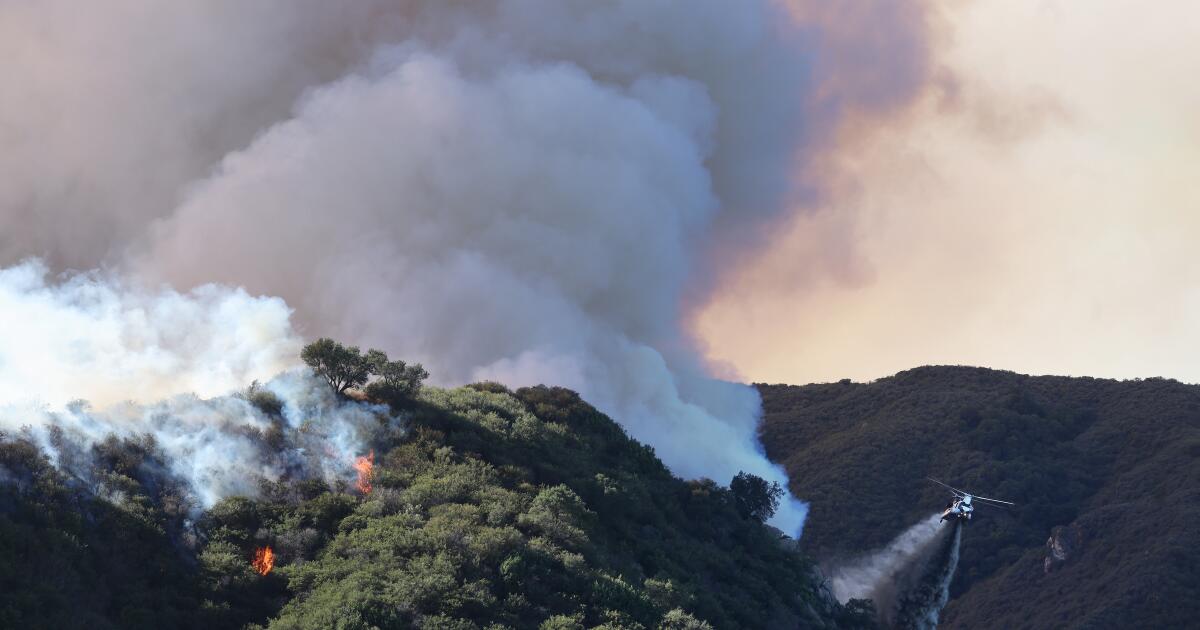The US is attacking all of Syria, and it’s not the only one dropping bombs in this uncertain time.
-
US warplanes attacked Syria as the Assad regime fell on Sunday.
-
They have hit dozens of targets in support of the campaign against ISIS, which officials say will continue.
-
The US is not the only military to conduct strikes amid the uncertain situation in Syria.
The US military has carried out the largest airstrikes in Syria since the fall of the Assad regime at the weekend, and it is not the only country hunting targets in this uncertain time.
American, Israeli, and Turkish forces have all been involved in bombings across Syria over the past few days in actions that are said to support their national security needs.
For the US, this means continuing to go after the Islamic State, as it has done for years, but with an effort to keep the group out of existence. The Biden administration says the campaign will continue despite the uncertainty about the future of the Syrian leadership.
The US has repeatedly stated that it is committed to the permanent defeat of ISIS. “We don’t want to give ISIS an opportunity to exploit what’s going on,” White House National Security Council spokesman John Kirby told reporters Tuesday, adding, “They like nothing more than an ungoverned environment.”
Extended military action in Syria
As rebel forces entered Damascus on Sunday and Syrian President Bashar Assad fled the country, US Air Force B-52 bombers, F-15 fighter jets, and A-10 attack jets pounded ISIS in central Syria. These widespread strikes have attacked the leaders of this terrorist group, officials and camps, said the US Central Command, which oversees operations in the Middle East.
IF-15 Strike Eagles, like the one pictured above, took part in widespread strikes against ISIS over the weekend.US Air Force photo
A senior administration official, speaking to reporters, described the operation as “important” and said that US warplanes dropped about 140 missiles to hit 75 targets. The US military said the aim of the strikes was to prevent ISIS from re-establishing itself in central Syria.
Jonathan Lord, a former political and military analyst at the Pentagon, told Business Insider that the US military is “reasonably concerned that ISIS could break through the cracks of chaos,” so it’s hitting as many targets as possible.
Retired General Joseph Votel, who oversaw US military operations in the Middle East in the 2010s as head of Centcom, told BI it was “good” the US is sending a clear message and taking action to prevent ISIS from exploiting the loophole in central Syria. .
He added that it is important for the US to maintain a small presence in eastern Syria, calling it “the most effective and efficient way to keep tabs on this threat.”
The bombings that have been widespread since Sunday, however, are not limited to US actions. Israel has carried out more than 300 airstrikes across neighboring Syria, according to the UK-based Syrian Observatory for Human Rights, a war monitor.
Israel has targeted remnants of Assad’s former military, including aircraft, ammunition depots, weapons depots, warships, radar systems, and additional equipment, SOHR said. Israeli officials said the strikes were designed to prevent weapons from falling into the hands of potential enemies.

A Syrian warship, which was destroyed in an Israeli attack overnight, is pictured in the port city of Latakia on December 10.AAREF WATAD/AFP
“Israel is not taking a chance on its own security and is not waiting to find out whether the new Syrian government is friendly or hostile,” said Lord, who is now director of the Middle East Security program at the Center for a New American Security think tank. .
The Israeli army also sent its ground forces to the Syrian border beyond the buffer zone monitored by the United Nations that separates the two countries. The UN has condemned the move, which Israel says is a measure to protect its citizens amid uncertainty in Damascus.
Avi Melamed, a former intelligence officer in Israel, told BI that these actions are “a concerted effort to try to reduce as much as possible the risk of escalation of military challenges following the current situation in Syria.”
He said Israel’s approach may include efforts by officials to support airstrikes and safe zone operations.
Meanwhile, a Turkish drone attacked a military base in an area controlled by the Kurdish Democratic Forces, SOHR said on Tuesday. Ankara, which views the nearby SDF as a terrorist group, has watched the Kurdish forces for years. The US often works closely with the SDF in operations against ISIS.

Armored vehicles of the Turkish army arrive at a checkpoint on the Turkey-Syria border on December 9.AP Photo/Metin Yoksu
“The Turkish people have a legitimate counter-terrorism threat that they, too, have the right to deal with,” said Kirby, a White House spokesman, in response to a reporter’s question about measures against Kurdish groups.
The spread of military action comes after the dramatic collapse of the Syrian army, which lasted only a few days and removed Assad from power. The longtime dictator relied heavily on military support from Russia, Iran, and the Lebanese Hezbollah to contain opposition forces.
American officials blame the fall of the Assad regime on the fact that the three players have been weakened and distracted recently by their conflicts with Ukraine and Israel. Russia, in particular, exercised significant control over Syrian airspace, but Moscow’s military future in the country remains unclear.
Read the original article on Business Insider
Source link



